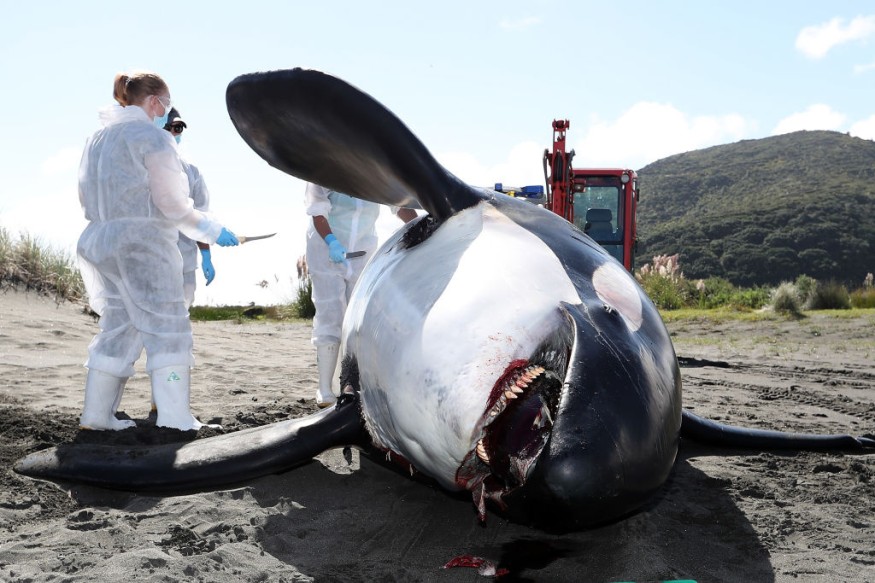Three great white sharks were spotted dining on a dead whale off the coast of Nantucket, just days after one devoured a seal on the island Wednesday. The trio was spotted munching on the remains for many days

White Sharks Feast on Dead Carcass
According to the Atlantic White Shark Conservancy's Sharktivity app, three great white sharks were seen eating the dead whale at Tuckernuck Island off the coast of Nantucket.
🦈 🍽 Dinner is served for the great white sharks around #Nantucket‼️
— Nantucket Current (@ACKCurrent) June 2, 2022
This one and at least three others were spotted feeding on the carcass of a dead humpback whale that was discovered in Madaket Harbor earlier this week.
Video via Brooks Robbie pic.twitter.com/dbPwdp6tPZ
Even before the apex predators arrived, the whale was probably already dead. There were no reports of any extra sharks or other marine species attending the shark feast.
The Facebook page of NOAA Fisheries New England/Mid-Atlantic used the site to post about the event on the same day, which showed the dead whale drifting in the Madaket Harbor region near Nantucket, an island off the coast of Cape Cod in the state.
After consulting with NOAA Fisheries, the US Coast Guard aided the Marine Mammal Alliance in Nantucket. A thorough examination was made and local officials estimated the humpback whale's length to be 40 feet.
According to the Shark Files podcast (via Daily Star), an adult humpback whale may weigh up to 40 tonnes, significantly more than a fully developed great white shark's yearly meat consumption of 12 tonnes.
Because the shark was already decomposing, experts could only estimate the size of the gigantic sea creature.
Furthermore, the photo on the FB post indicated that the trio of sharks had left only a part of the whale corpse behind.
It wasn't the first time sharks were seen feasting on a carcass of a dead whale. A swarm of great white sharks devoured a whale corpse off the coast of Provincetown last summer. Shark researchers tagged five of the eight great white sharks eating on the dead humpback.
"A dead whale is like the biggest smorgasbord a shark could ever dream of," Peter Corkeron, leading the whale research team at the New England Aquarium, told the Boston Herald at the time.
Shark Safety Measures
In the past six years, there has been an increase in humpback whale "unusual mortality events" throughout the Atlantic coast from Maine to Florida.
Boston Herald said Massachusetts had experienced the most humpback whale strandings on the East Coast during the previous six years, with 33, followed by New York with 32. There have been seven strandings in Rhode Island and five in Maine.
The National Park Service has issued several "shark safety measures" to safeguard the public, particularly beachgoers on Cape Cod, due to the shark threat.
Avoiding locations where seals or schools of fish are prevalent, restricting splashing to prevent drawing sharks, and obeying flag warnings and signs at beaches are all examples of these precautions.
Above all, the US agency stressed the need to stick close to the coast in shallower seas.
RELATED ARTICLE : Megalodon Extinction: Super-Sized Monstrous Sharks May Have Lost to Great White Shark in Competing for Preys [Study]
Check out more news and information on Animals in Science Times.
© 2026 ScienceTimes.com All rights reserved. Do not reproduce without permission. The window to the world of Science Times.











